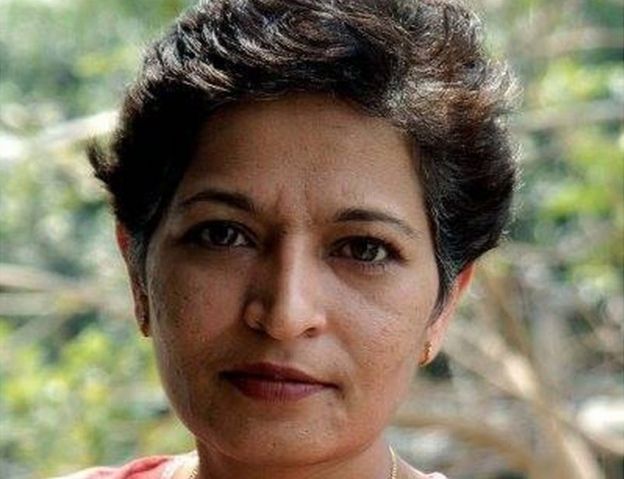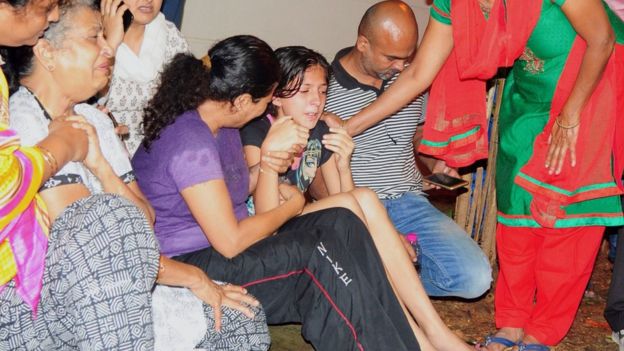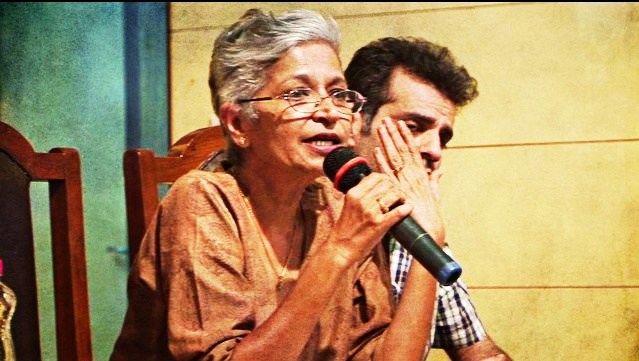Gauri Lankesh, 55, a prominent Indian journalist critical of Hindu nationalist politics was shot dead in the southern state of Karnataka. She was was found lying in a pool of blood on her doorstep in the city of Bangalore.
She was shot in the head and chest by gunmen who arrived on a motorcycle. Ms Lankesh had returned home in her car on Tuesday night and was opening the gate when the attackers shot her, police said. She died on the spot. Officials said they suspected she had been under surveillance by the gunmen. An investigation has been opened.
The most high profile Indian journalist murdered in recent years, Ms Lankesh was buried with full state honours. The chief minister of Karnataka, Siddaramaiah, was among those who attended the funeral.
Protests against her killing have broken out in several Indian cities, including the capital, Delhi. Indian reporters are being increasingly targeted by radical Hindu nationalists, activists say. In the last few years, journalists seen to be critical of Hindu nationalists have been berated on social media, while many women reporters have been threatened with rape and assault.
Ministers belonging to India’s ruling Bharatiya Janata Party (BJP) have also openly attacked journalists, using terms like “presstitute” (a mix of press and prostitute) to describe them.

Her killing follows several assassinations of outspoken secularists or rationalists in recent years, including scholar Malleshappa Kalburgi, anti-superstition activist Narendra Dabholkar, and author-politician Govind Pansare.
The watchdog Reporters Without Borders said that radical nationalist journalists have targeted other writers, with online smear campaigns and threats of physical reprisals. “With Hindu nationalists trying to purge all manifestations of ‘anti-national’ thought from the national debate, self-censorship is growing in the mainstream media,” the group said.
She worked for The Times of India and later ran an independent newspaper, Lankesh Patrike, along with her brother Indrajit, for several years. The newspaper had been founded by her father, P Lankesh, a left-wing poet and writer.
After a split with her brother, she left to start several publications, including her own newspaper Gauri Lankesh Patrike. Award-winning filmmaker Kavitha Lankesh was her sister.
 Courtesy AFP
Courtesy AFP
She was sympathetic to the Naxalites, or Maoist rebels who have been carrying out a bloody insurgency against the government, and was involved in the reintegration of former rebels. Ms Lankesh was convicted of defamation last year for a report she published on local BJP leaders.
She was sentenced to six months in jail and was out on bail and appealing the conviction at the time of her death.
Her death has been widely condemned across India. Protests have been held in several cities including Bangalore, Mumbai and the capital, Delhi. More protests are planned.






